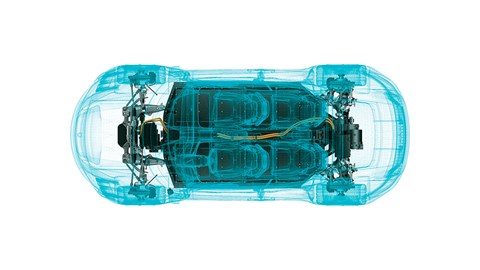► Audi R8 destined for the chop
► Replaced by this RS e-Tron e-supercar
► CAR uncovers plan for Rimac tie-up
Audi is approaching Rimac for help to launch the RS e-Tron all-electric supercar – the zero-emissions rocketship due to replace the Audi R8, which is on death row as the world turns its back on profligate fossil fuel dinosaurs.
It’s the natural fall-out as the VW Group ruthlessly pivots its product range around the new electromobility holy grail. But that doesn’t mean no more exciting Audis – far from it.
The burgeoning Audi e-Tron family of EVs is working towards the 2023 or 2024 launch of this RS e-Tron, an electric replacement for the R8. It was previously dubbed e-Tron GTR, but CAR magazine has uncovered fresh details of the new supercar EV.
Our guide to the best electric cars and EVs on sale today
Rimac to help Audi with next R8
The RS e-tron would be assembled in Audi’s own Bollinger Höfe factory near Heilbronn, home of the A6/A7/A8. But due to budgetary constraints, Audi Sport is contemplating farming out large chunks of the development work to Rimac in Croatia, already an ally of Porsche, in talks with Bugatti, and a potential partner of Lamborghini.
The idea is to have Rimac supply the four-motor powertrain and fast-charge batteries for the 950bhp EV sports coupe. According to senior insiders contacted by CAR, the new RS e-Tron would be priced at just under €200,000 (£185,000) when it arrives in four years’ time.
Capable of accelerating from 0-62mph in only 2.5sec, the all-wheel drive multi-material lightweight two-seater would be fitted with an active aero assembly (AAA) to boast the lowest drag coefficient in its class.
Audi RS e-Tron: battery tech specs
In three years’ time, Audi engineers will have at their disposal the latest solid-state batteries, the futurologists are claiming. So there’ll be a step change in cell capacity and quoted range, while Ingolstadt is known to be liaising with Porsche over using many elements from the Porsche Taycan’s J1 platform (below).

Our sources in Ingolstadt are predicting:
- Four electric motors
- 95kWh solid-state battery
- Wireless charging
- 700kW system output (equivalent to 950bhp)
- 300-mile range
- All-wheel drive
- Aluminium monocoque chassis
Right now, the RS e-tron is still only a paper tiger like so many exciting proposals before it. But if Audi is serious about that Vorsprung durch Technik slogan, it is high time to put these words into action.
The business case
To help make every part of Audi profitable in the face of the slim margins on electric cars, CEO Bram Schot is in the midst of a product cull – and the profligate R8 V10 is looming large in his sights.
R&D chief Hans-Joachim Rothenpieler told CAR: ‘Audi Sport must have e-mobility, and our icons for the brand must become electric. We are in discussions regarding the sporty cars and the RS vehicles – they will need a change towards e-mobility.
‘The e-Tron GT will come towards the end of 2020 – that’s the first step. Electrically, you can control things more, and have more of an emotional influence on driving behaviour.’
Further electric reading
Best electric cars on sale today
How much does it cost to charge an electric car?
The best upcoming electric cars and EVs